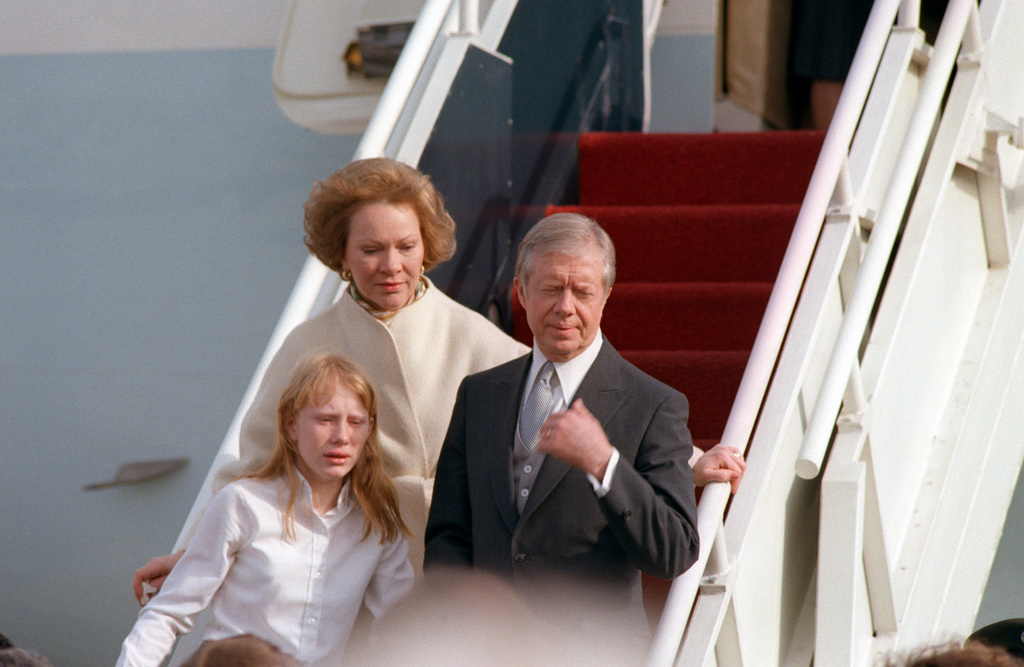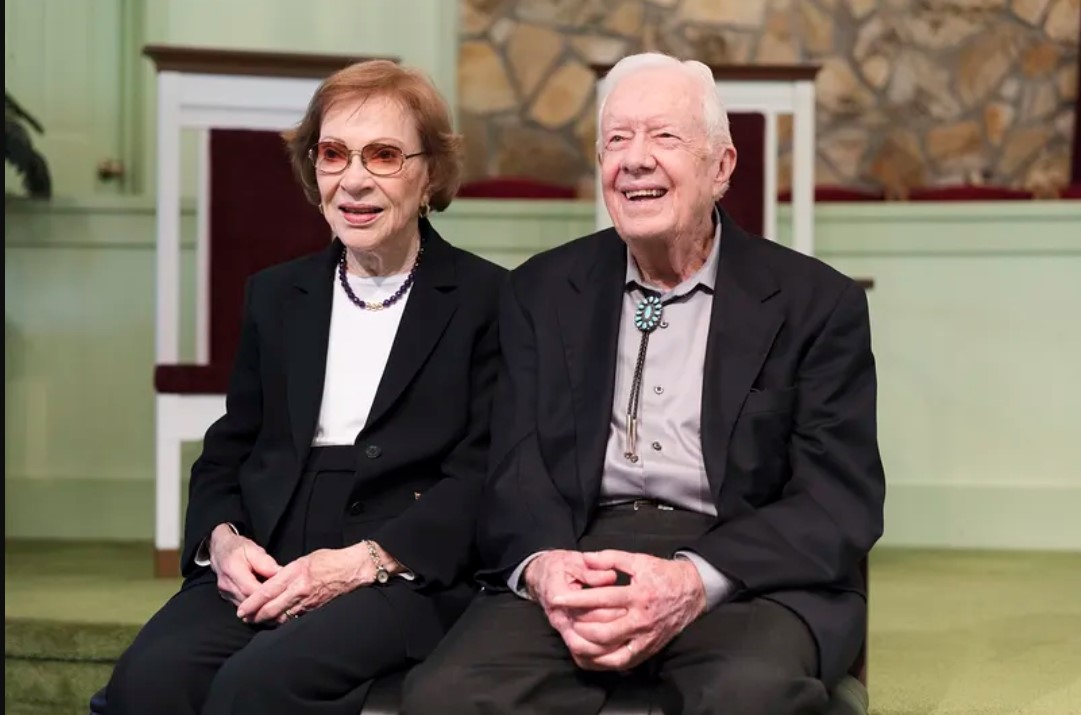Former President Jimmy Carter is dead at 100. His son James Carter III, also known as Chip, broke the sad news. In February Carter had decided to stop treatment for a very aggressive form of skin cancer.
There are very few politicians who are admired for their values, their honesty, and their humanitarian deeds. Former President Jimmy Carter was among the rare exceptions; but then, he was more than a politician. He served as a model of what a good human being should be, especially in the later stages of his life.
As reactions to his death come in, Senate Minority leader Mitch McConnell offered one of the most poignant. “Jimmy Carter’s character and commitment, just like his crops, were fruits of all-American soil. After every season when life led him to lofty service far from home, he came back home again, determined to plow his unique experiences and influence into helping others; into building and teaching and volunteering; into further enriching the same rich soil that had made his own life possible,” McConnell said.
His post-presidency years came to be defined by humanitarian and peace advocacy efforts, and they exemplified a well-known quote that encapsulated his life’s purpose and philosophy: “I have one life and one chance to make it count for something. I’m free to choose that something. … My faith demands that I do whatever I can, wherever I can, whenever I can, for as long as I can.”
As one admirer put it, “Great man, great president, probably under-appreciated by those who didn’t know much about him.” There is little doubt that Carter will be remembered more for his humanitarian efforts than for his presidency.

Polls of historians and political scientists have generally ranked Carter as a below-average president. A 2018 poll of the American Political Science Association’s Presidents and Executive Politics section ranked Carter as the 26th best president. A 2017 C-SPAN poll of historians also ranked Carter as the 26th best president. Some critics have compared Carter to Herbert Hoover, who was similarly a “hardworking but uninspiring technocrat.”
Robert A. Strong, Professor of Politics at Washington and Lee University has written: “Jimmy Carter is much more highly regarded today than when he lost his bid for reelection in 1980. He has produced an exemplary post-presidency, and today there is an increased appreciation for the enormity of the task he took on in 1977. Carter took office just thirty months after a President had left the entire federal government in a shambles. He faced epic challenges—the energy crisis, Soviet aggression, Iran, and above all, a deep mistrust of leadership by his citizens. He was hard working and conscientious.”
His critics weren’t so kind, they saw him as a fish out of water in Washington D.C. and frequently mocked him as the “peanut farmer.” Carter served a single, tumultuous term and was defeated by Republican Ronald Reagan in 1980, a landslide loss that ultimately paved the way for his decades of global advocacy for democracy, public health, and human rights via the Carter Center.

Hailing from a family of farmers who had been in Georgia since the 1630’s, young Jimmy was energetic and enterprising. By the time he was ten, he stacked produce from the family farm onto a wagon, hauled it into town, and sold it. He saved his money, and by the age of thirteen, he bought five houses around Plains that the Great Depression had put on the market at rock-bottom prices. These homes were rented to families in the area.
After a promising Navy career, he was called back to Georgia to save the family farm after his father’s death, a task that he accomplished brilliantly and which in a roundabout way led to a political career that eventually landed him in the Governor’s mansion.
Carter became President by narrowly defeating Gerald Ford, a man who had landed there by accident when Nixon was forced to resign, and who has gone down in history as the first, and so far the only, person to become President without winning a general election for President or Vice President.

Jimmy Carter’s greatest accomplishments during his tenure were to create the Department of Education, bolster the Social Security system, and appoint record numbers of women, blacks, and Hispanics to Government jobs.
Additionally, he created a national energy policy that included conservation, price control, and new technology. Carter pursued the Camp David Accords, the Panama Canal Treaties, and the second round of Strategic Arms Limitation Talks. He also confronted the stagflation that he had inherited from Ford. In foreign policy, in an effort to end the Arab–Israeli conflict, he helped arrange the Camp David Accords between Israel and Egypt. These efforts were eventually rewarded with the Nobel Peace Prize that he received in 2002, for undertaking peace negotiations, campaigning for human rights, and working for social welfare.
Nevertheless, his tenure as president will forever be associated with the failure of the Iran hostage crisis. Into its sixth month, and all diplomatic appeals to the Iranian government having ended in failure, President Jimmy Carter ordered the military mission as a last-ditch attempt to save the hostages. During the operation, three of eight helicopters failed, crippling the crucial airborne plans. The mission was then canceled at the staging area in Iran, but during the withdrawal one of the retreating helicopters collided with one of six C-130 transport planes, killing eight service members and injuring five. The next day, a somber Jimmy Carter gave a press conference in which he took full responsibility for the tragedy. The hostages were eventually released—but it took another 270 days, and by that time he was out of the White House and Reagan got the credit. This debacle had an enormous impact on the Carter presidency and is widely acknowledged as the reason for his loss in the 1980 election.

As the post-presidency years passed, Jimmy Carter grew in stature, as a humanitarian and a global diplomat—a senior statesman who was respected by the entire world. His work for Habitat for Humanity was truly inspiring and was a measure of the man’s humility, as he continued to personally wield a hammer and saw planks until well into his later life, into his 90’s.
At the time that he entered hospice care on February 19, 2022, Nicholas Kristof, a New York Times columnist, tweeted: “Prize winners and truly impressive people. Few are as truly good as Jimmy Carter, who at age 98 is now entering hospice. He leaves this planet so much better than he found it. A great, great, great man.” No man or woman could wish for a more worthy epitaph.
Jimmy Carter had said in recent months that he hoped to live long enough to vote for Kamala Harris. He succeeded in attaining his wish.












